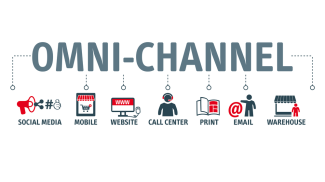Adopting greener working practices that prioritize creating a more sustainable business which is kinder to our environment, is becoming a leader concern for small businesses. Not only can crafting sustainable practices help businesses save money on the likes of energy bills, but it also ensures a business adapts a more environmentally-responsible reputation.
Green Practices
If you’re looking for ways to make your small business greener, check out Small Business Trends’ ultimate guide to green practices for your small business.
Recycling
Recycling is one of the easiest and most effective ways for a small business to become greener. Simply placing recycling bins next to photocopiers and in other strategic places in an office or work premises will encourage employees to place waste in an appropriate recycling container.
Recycling comes with multiple tangible benefits for small businesses, including lowering waste costs, making savings on new purchases, increasing morale within the workforce, improving the image of a brand, and, of course, meaning the business is doing its bit to help conserve energy and materials, and save the environment.
As the Environmental Protection Agency states, approximately 75 percent of solid waste that’s thrown away is recyclable. By being savvy about recycling at work and encouraging workers to adopt recycling practices will ensure a small business starts to positively contribute to the environment.
Energy Saving
When you’re not at your desk, why does your computer need to be switched on? Similarly, when the office is empty, why do lights need to be left on? Energy is an unavoidable business expense but fortunately there are many ways a business can make energy savings and thereby reduce the company’s carbon footprint.
One of the simplest ways to reduce energy consumption is to switch off. Whether it’s appliances, lights, heating or the radio, switching off equipment when it’s not in use will save on power.
Instead of relying on artificial lighting, use natural daylight whenever possible. Why? because it’s free! So, open the blinds and clear the windows to let as much natural light filter into the office as possible.
Switching to energy-efficient equipment might require a fairly large initial investment but can save your small business money on energy bills in the long-term, not to mention ensure you operate a greener business. As can installing occupancy sensors in rooms that are not constantly occupied, such as bathrooms, cloakrooms and conference halls, which automatically switch off the lighting when the room becomes vacant.
Going Paperless
We’re firmly entrenched in the digital era, so why not ditch the use of paper almost entirely and opt for solely digital forms of communication and paperwork, an accomplishment that will not only save a small business money but put it on the environmentally-friendly business highway.
Small businesses can adapt paperless principles through a myriad of efforts. Some of the most effective ways to ditch paper in favor of digitalized communication is by sharing files digitally, storing files in the cloud-based systems, such as Dropbox, phasing out photocopying and faxing, swapping paper bills and statements for digital ones, encouraging digital communications, generating digital business cards, using electronic signatures, making meetings paperless and training staff to be ore digitally competent.
As well as helping to save the environment from man-made demise, going paperless at work comes with other advantages, such as improving collaboration among members of staff.
Reducing Heating and Cooling Costs
Cold winters and hot summers take their toll on a business’s energy costs. Whilst heating and cooling expenses are unavoidable for most businesses, there are a number of fairly simple techniques you can implement to help reduce such costs.
According to the Department of Energy, warm air escaping from a building equates to around 20 percent of heating costs. Preventing drafts by weather-proofing doors, sealing window frames and other leaks can significantly reduce heating costs in a building.
Smart thermostats, which enable businesses to set temperatures for different times of the day can help a business save hundreds of dollars throughout the winter. As can ensuring the company’s boiler is running efficiently!
In the summer, the cooling demands in offices can be equally as energy-draining. Using ceiling fans and encouraging the use of desk fans will mean the workspace is less reliant on costly air-conditioning to cool the building down.
Utility companies often offer energy saving incentives, which are worth investigating. For example, some energy suppliers will lower a commercial customer’s energy bills in return for allowing the business to cycle off air conditioning during peak time periods.
Greener Ways to Travel
Commuting to work by vehicle and going on business trips can wreak havoc on a company’s carbon footprint.
Counter the negative effects of business travel by walking or cycling to work and encouraging colleagues and employees to travel to work by such methods. If cycling or walking to work isn’t possible, encourage staff to share lifts with one another to help cut down on the emissions being produced on the commute to work.
A World Economic Forum Report from 2008 revealed that business travel accounts for an average 15 percent – 20 percent of a company’s total carbon emissions. If your business does require a hefty amount of business travel, opt for greener ways to travel other than planes. Trains, for example, use 50 percent less fuel per passenger than an airplane for the same trip, making trains a much greener choice for business travelers.
Virtual Staffing
Hiring virtual staff that work remotely and provide virtual staffing and reception tasks opposed to in-house employees that require office space, comes with a number of benefits to small businesses. As such virtual staff do not have to travel to work and can conduct business tasks from their own locations, virtual staffing can be an effective way for small businesses to reduce their carbon footprint and become more environmentally astute.
Donate to Earth Tax
Another lesser known and lesser practiced ways companies can go green is to donate a percentage of its profits to Earth Tax. The clothing brand, Patagonia, has introduced a new way to raise money for environmental causes — an earth tax. The outdoor clothing brand calls for business to donate 1 percent of their annual sales to grass root organizations dedicated to environmental causes and promoting sustainable agriculture practices. As of 2016, Patagonia had donated $70 million to such initiatives.
With a little time, effort and imagination, there’s plenty of ways small businesses can become greener and save money and expand their credibility in the process.
Save the World Photo via Shutterstock







Mike Jason
We really need to take some initiative as soon as possible. There are so many option available already to recycle but we don’t put that extra effort required to make our society a bit more greener and clearner.